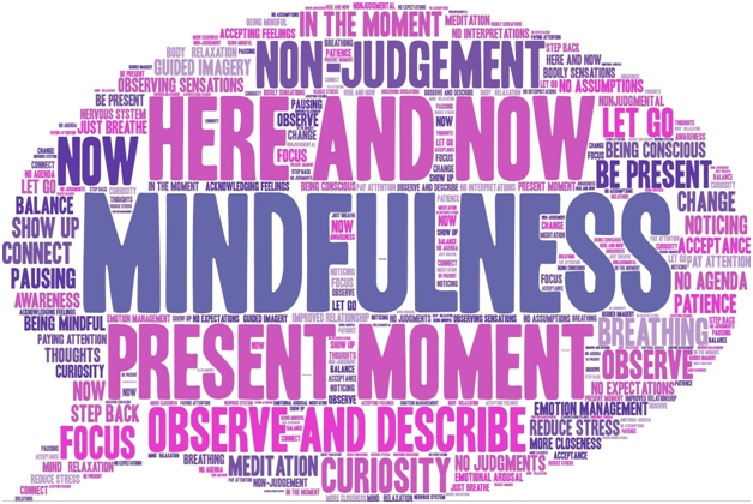Life is full of challenges, demands, and distractions, making it easy to feel overwhelmed. For many women, external pressures—work, relationships, family responsibilities—can leave little time for self-care. This is where mindfulness can become a powerful and accessible tool to help reduce stress, improve well-being, and rediscover balance.
But what is mindfulness, and how can it help eliminate the anxiety many of us may be feeling in today’s world? In this blog, we’ll explore the key benefits of mindfulness for mental, emotional, and physical health and how you can start incorporating this practice into your daily life.
What is Mindfulness?
At its core, mindfulness is about being fully present in the moment—aware of where you are, what you’re doing, and how you’re feeling—without judgment. It’s a skill that lets you gently bring your wandering thoughts back to the present instead of focusing on worries, regrets, or endless to-do lists.
While mindfulness has its roots in ancient traditions, it’s now widely recognized by psychologists and doctors as a scientifically-backed way to improve mental health and overall quality of life.
The Health Benefits of Mindfulness
Mindfulness isn’t just a buzzword; it’s a life-enhancing practice with proven benefits. Here’s how it can transform your well-being:
1. Reduces Anxiety
One of the most significant benefits of mindfulness is its ability to help eliminate the anxiety many of us may be experiencing in today’s world. By focusing on the present moment and limiting racing thoughts, mindfulness can help calm the mind, create a sense of clarity, and reduce feelings of fear and worry.
Research shows that regular mindfulness practices, such as meditation and mindful breathing, can decrease symptoms in people struggling with generalized anxiety disorder.
2. Improves Emotional Resilience
Mindfulness helps us develop greater awareness and control over how we respond to challenges. By observing our emotions without immediately reacting, we can pause, reflect, and choose a healthier response. This can make it easier to manage stressful situations and reduce feelings of anger or frustration.
3. Enhances Physical Health
The mind-body connection is powerful, and mindfulness benefits more than just mental and emotional states. Studies have shown that mindfulness can:
- Lower blood pressure
- Improve sleep quality
- Reduce symptoms related to chronic pain
- Decrease levels of cortisol, the stress hormone
This makes mindfulness an excellent complement to traditional medical treatments for many physical conditions.
4. Boosts Focus and Productivity
Ever feel like your mind is constantly on overdrive? Mindfulness can help you regain clarity and focus by training your brain to concentrate on the task at hand. This benefit can be a game-changer for women balancing multiple roles—whether managing a career, household, or both.
5. Fosters Self-Compassion
Many of us are our own worst critics. Mindfulness encourages self-compassion and kindness by helping us accept ourselves as we are, flaws and all. This shift in perspective can be liberating, empowering women to build healthier self-esteem and confidence.
Simple Ways to Incorporate Mindfulness into Everyday Life
Getting started with mindfulness doesn’t have to be complicated or time-consuming. Here are a few simple practices you can try today to bring more calm and intention into your life:
1. Morning Breathing Exercise
Start your day with 5 minutes of deep, mindful breathing. Sit in a quiet space, close your eyes, and focus on your breath. If your mind wanders, gently bring your attention back to your breathing. This small ritual can set a calming tone for the hours ahead.
2. Gratitude Journaling
Take 5 to 10 minutes daily to jot down three things you’re grateful for. This practice shifts your focus away from stress and onto the positives in your life, promoting a more mindful outlook. It does not have to be a major thing that you are grateful for. There are some days that my journal has my gratitudes as waking up, my first cup of coffee in the morning, and remembering to water my plants, and my fur babies.
3. Mindful Eating
Instead of rushing through meals, slow down and savor each bite. Pay attention to the taste, texture, and aroma of your food. This enhances your enjoyment of meals, helps prevent overeating, and improves digestion. How often have we finished a meal while doing or thinking about something else? At the end of the meal, we barely remember what we ate.
4. Mindful Walks
If you can, step outside for a 10-minute walk during the day. Observe the sights, sounds, and sensations around you. Leave your phone behind and immerse yourself in the present moment. Smell the earth, be present to the temperature on your skin, listen to the natural sounds around you, and feel the earth under your feet are some suggestions to bring you into the present moment.
5. Guided Meditation
If you’re new to mindfulness, guided meditations can be very helpful. Apps like Headspace, Calm, and Insight Timer offer a wide range of beginner-friendly mindfulness sessions.
Why Mindfulness Matters More Than Ever
Anxiety, stress, and self-doubt are common everyday struggles for women of all ages, but mindfulness provides a way forward. Incorporating mindfulness into your daily routine can create a ripple effect—calming the mind, improving physical health, and strengthening relationships.
No matter your stage in life, it’s never too late to begin this empowering practice. Take a few minutes daily to pause, breathe, and reconnect with the present. Your mind and body will thank you for it.
Are you ready to start your mindfulness journey? Take that first step today, and discover how powerful life can be when you focus on the here and now.




